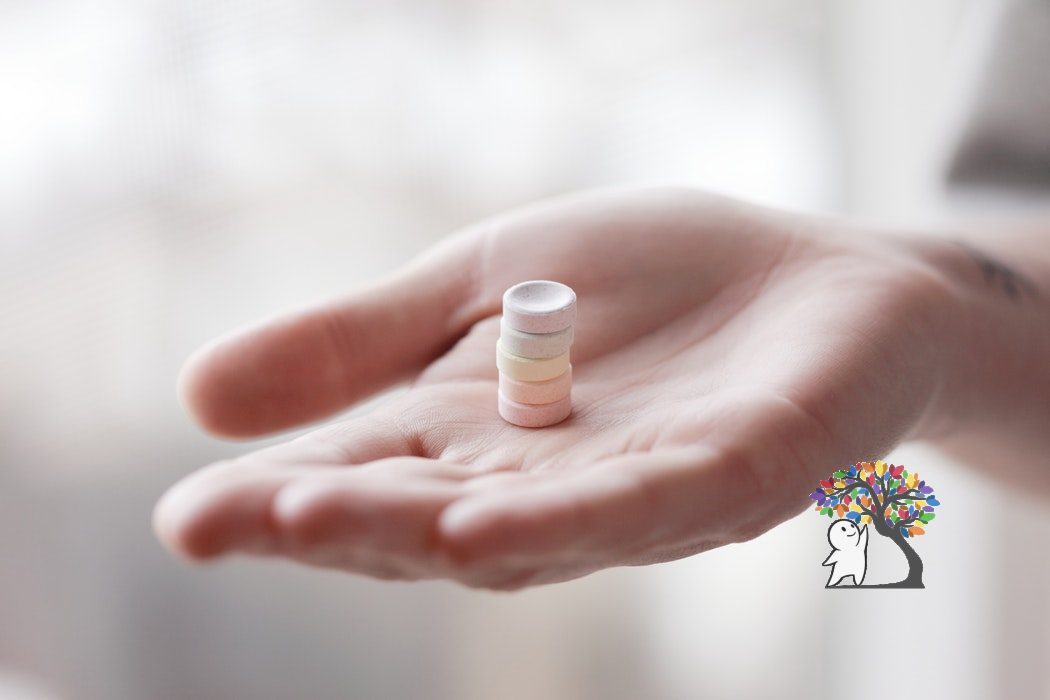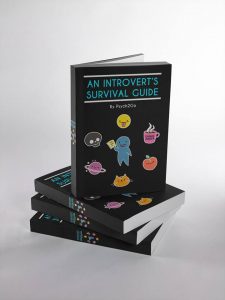6 Things You Should Know About Medication Before You Start

Taking medicine can seem intimidating, mainly because we’re afraid that it’ll take control over us. Will my body react to the side effects? How do I know if the dosage I’m taking is okay? And the most common question asked: Does it actually work? These are all normal concerns to think about. Taking medication is a big step. Psych2Go shares with you 6 things you should know about medication before you start:

1. No one else can force you to take medication if you don’t want to.
If someone is telling you to take medication, but you are resistant to it, then you’re not going to respond well to it. Erin Bogo, our Youtube manager, states, “You have to be exceptionally open-minded to let it change your life for the better.” Bogo has been taking medication for a year and said based on her experiences, medication has been most effective for her when she adapts this mindset, believing that it will improve her mental health condition.
I was recently diagnosed by my doctor with generalized anxiety disorder and he prescribed me with antidepressants. I’ve never been good at swallowing pills because having anxiety about it makes it hard for the pill to go down. As a result, I was initially reluctant to give it a try. But each time I’m scared, I still take it everyday, mainly because I’m trying to get better. As long as I have that mindset, I realize I have a chance at standing up to my anxiety.

2. Stay in contact with your doctor.
Communicating with your doctor is important. If you’re reacting badly to the medication, let your doctor know, so they can investigate what is happening to prevent it from happening again. Your doctor is there to do what is best for you, but the only way they can do that is if you are open and honest about how the medication is affecting you. For instance, you may get a prescription for antidepressants, but the dosage may be too strong for you. If that is the case and you are suffering the side effects from it, let your doctor know so they can change the amount you are taking, or prescribe a more mild type of drug that suits your body’s pace at adapting to the chemicals it releases.
Ask your doctor what time slots they are available to answer your phone calls for any questions you may have. With the widespread of technology today, you can also get access to your medical records and your doctor’s notes online and send them a message if you have any questions or concerns. Phone calls, however, are usually more reliable if you want a quicker response.

3. Medication will not change your personality.
Bogo states that she was afraid that taking medication would affect her organizational skills. But, her doctor said that the medication would help with her OCD, not change who she identifies with. That way, it won’t be a matter of life or death if something is messy around her. She’ll actually have a choice in the matter and will get to decide whether she wants to take care of it now or later. The purpose of medicine is to help people gain more control in their life and make them feel capable of carrying out daily tasks, not act as a threat that will negatively affect the way they perform.

4. Medication yields the best results when combined with using psychotherapy.
Medication alone won’t be as effective unless you also put in the work to help yourself get better. This is especially true for mental health illnesses, like anxiety and depression. Certain regions in the brain regulate our moods. According to Harvard Health Publishing, “researchers believe that — more important than levels of specific brain chemicals — nerve cell connections, nerve cell growth, and the functioning of nerve circuits have a major impact on depression. Still, their understanding of the neurological underpinnings of mood is incomplete.”
This is why it’s important to work with available resources that have been proven to work. Psychotherapy paired with medication is effective because it involves you to take action when you feel as though your mental health is plummeting. It allows you to check in with your reactions, make sense of them, and understand that the threat doesn’t always align with reality.

5. Be aware that seasonal change also affects how the medication helps you.
Your prescription may fluctuate based on the seasonal changes. If you live where the weather is fairly consistent, you may not experience this. But in places where all four seasons happen, April is usually the hardest month for people with mental health problems because it’s a time of difficult change. Although mental illness is an internal battle, we cannot forget that we are influenced by our environmental factors, too. It is best advised to talk to your doctor about how the weather may be affecting the way your medication is working.

6. If you are afraid about being dependent on medication, you must first understand what being dependent means.
Bogo’s doctor used diabetes as an interesting example. He states that people with diabetes are dependent on insulin for maintaining a normal mental and physical health. However, they can choose not to take it. The downside, though, is that they will most likely get sick because of elevating blood sugar levels. Anyone who is on medication can stop whenever they want to, but like with any decision, there’s always consequences.
Bogo states that if she stopped taking medication right this second, she would start getting sick again, her depression would rise, and she would have trouble sleeping. She said that once she’s in a more stable phase in life, she will most likely stop taking her medication, but as of right now, she needs it. You don’t have to be afraid of taking medication forever, because we are not necessarily dependent on antidepressants, but they do make life a little easier and more manageable until we find ourselves in a better place. Bogo states, “It’s always a choice and it’s up to the patient. Do what you feel is right in the moment.”
What do you think?
Are you experiencing some uncertainty about taking medication? Psych2Go would love to hear your thoughts! Please be sure to leave a comment down below!
Want to say hello or send a personal message? You can reach the author at catherine@psych2go.net. ♥
If you enjoyed this article, then you may also like 5 Reasons Why You Don’t Need to Be Afraid of Therapy or 6 Ways You Can Break Free from Your Trust Issues.
Looking for more reading supplies? Please check out our e-book: An Introvert’s Survival Guide! Get your copy today!
Love our content and want to continue supporting us? Visit our Patreon!
References:
What Causes Depression. (2009, June). Harvard Health Publishing. Retrieved April 18, 2018.




Responses